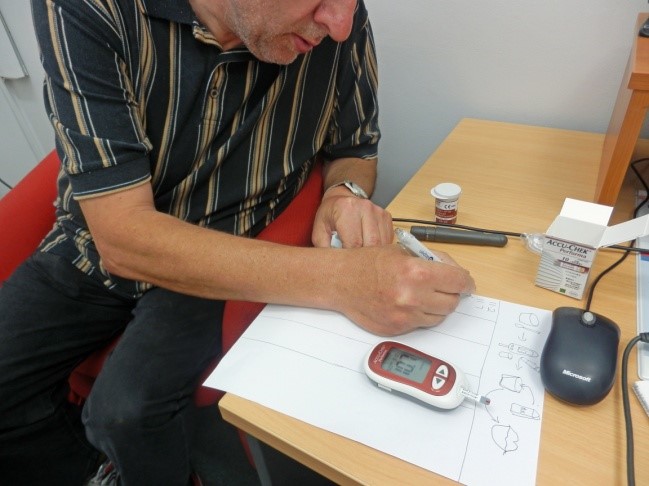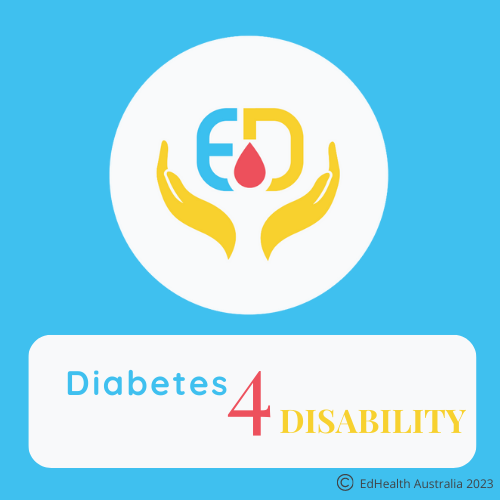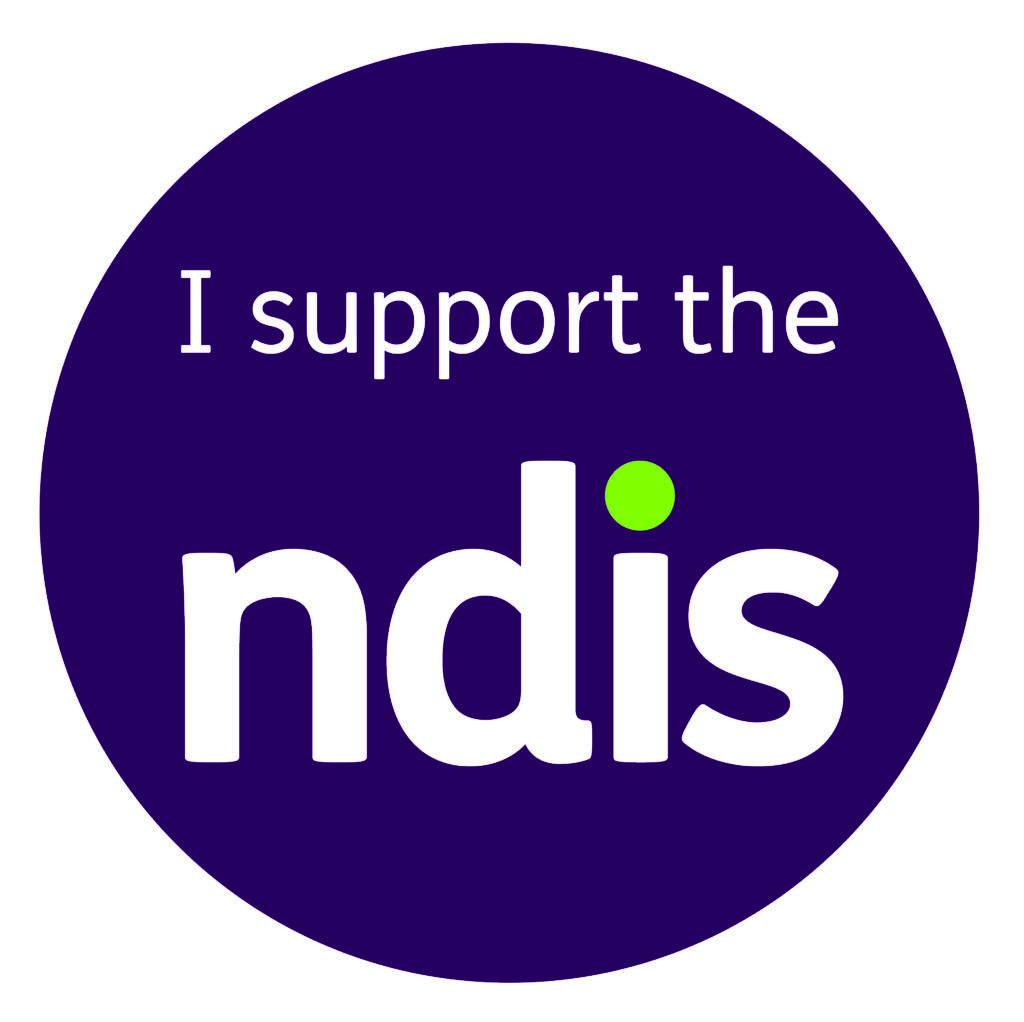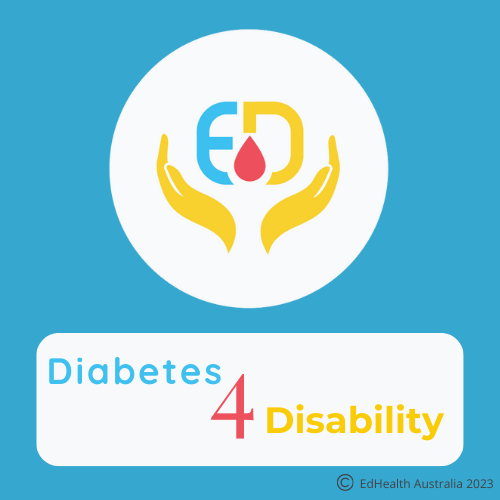
People with a disability are 2-3 times more likely to get diabetes due to higher rates of obesity and anti-psychotic medication use. People with diabetes need to learn a lot of new information about their condition and its treatment, for them to be able to take good care of it and maintain their health. The health impact of their diabetes is likely to be significant when they live with an intellectual, cognitive or psycho-social disability and they will rely more heavily on the support of their circle of support for the implementation of diabetes treatment and management recommendations, from their health team.
What is a ‘Circle of Support’

A circle of support is a group of people who share a common goal to support the wellbeing of another person. It can include, but is not limited to:
- The person with a disability
- Family
- Friends
- NDIS professional supports e.g. support coordinator, disability support managers
- Support workers
- Health professionals
They play an important role, providing support and services to help the person to achieve their goals, like living a healthy life with diabetes.
EdHealth magnifies circle of support capacity

NDIS participants with diabetes benefit from the inclusion of the EdHealth team in their circle of support.
Our Diabetes 4 Disability (D4D) services work to:
- Identify the current members of our client’s circle of support
- Recommend new members required
- Define their role, including agreed allocation of support
- Provide training to increase capacity
- Create low literacy resources to be used by their circle
- Document the support to be provided
- Evaluate the effectiveness of the support they receive.
The Health Team
EdHealth can work with NDIS participants and their circle of support to make sure their health team delivers high quality and effective diabetes treatment, management and health screening. This is achieved with tangible strategies to guide how to set the health team up to deliver what each person needs. For example, it is important for people with a disability to see their general practitioner regularly enough to have their diabetes and other health needs addressed.
This includes:
- Check-ups when unwell
- Health checks to prevent or pick up a problem early
- Chronic disease management for their diabetes
- Referrals to see other health professionals
- Repeat prescriptions
- A longer check-up each year.
Will NDIS fund diabetes support?

The National Disability Insurance Scheme (NDIS) provides support for people with a disability to care for their diabetes if that support is needed due to the impact of their disability.
Click! to find out more about NDIS diabetes management support.
Click! to find out more about NDIS disability related health support.
Where to start?

EdHealth will focus on the disability side of the NDIS participant’s diabetes support, for a Diabetes 4 Disability (D4D) solution that sets the person, their circle of support and health team up to successfully care for their diabetes.
A good place to start is for us to assess the needs of a NDIS participant with diabetes and their circle of support. We identify what the participant requires and the role their circle of support in managing their diabetes. This is summarised in a report, including reasonable and necessary support for NDIS to fund to fund so the impact of their disability does not prevent them from caring for their diabetes.
Services:

Click! to find out about the Diabetes 4 Disability services we use to create diabetes support solutions.
Click! to find out more about the reason why EdHealth is intrinsically person centred and able to consider the disability and diabetes sides of each NDIS participant’s diabetes care and support.
Contact Us

Find out how we can help your NDIS Participant and their circle of support to manage their diabetes self-care:
Email: admin1@edhealth.com.au Phone: 0412 102 048

